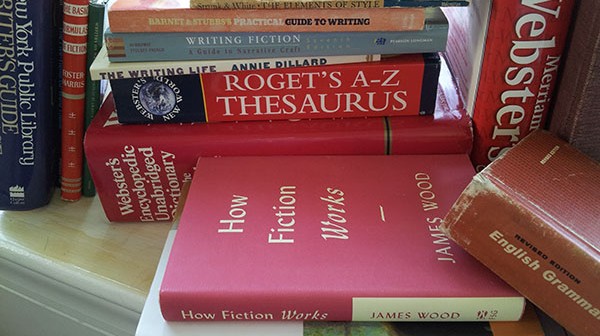What makes a good writer? Creative ideas, discipline, dictionaries, a certain je ne sais quois, but let’s not forget the role of editors. They fine-tune our work, not to mention force us to be careful and precise. It’s a little bit like having a parent peer over your shoulder because without your editor’s final approval, your piece isn’t going in print. Editors push us to write better. Sloppiness is taboo, a C- on your paper. See me after class.
This week I asked longtime friend and editor Marilyn Shaw a few questions about the freelance market and how to improve your writing. Marilyn was a newspaper editor for 20 years and now has her own communications business. She also edited my novel The Excellent Advice of a Few Famous Painters which is in the hands of various and sundry agents and editors. What follows is great advice for solid writing and how to market yourself. I plan on keeping her tips in the file cabinet next to my desk so I can refer to them from time to time.
1. What is the best way to pitch an editor?
Study the publication. Understand its audience. Listen to the tone and voice of its articles. Find the name and contact details for the appropriate editor. Craft a compelling pitch.
A brief phone call is a good way to introduce yourself to an editor with whom you haven’t worked. Done well, this can wind up with an invitation to pitch story ideas.
Recognize that the editor is busy and ask if he or she has 2 minutes to hear from a potential freelance writer. Keep your call to 2 minutes or less. Provide your bona fides as a published writer or expert on a topic that falls within the editor’s realm. Say you have one idea ready to pitch in a follow-up email for the editor to consider at his/her leisure. Mention any tie-ins with upcoming calendar events. Be prepared to share your ideas on the phone, should the editor ask.
The pitch should be compelling without overstatement. Grab the editor’s attention with a gripping topic, notable sources you plan to interview and in the storytelling itself. The approach should be linked to the audience of the publication. In crafting your pitch, think about why you wish to target this article to this publication at this time. In an email query, mention your phone introduction with the editor (and his/her invitation to pitch), the pitch and any calendar tie-ins with your topic. Repeat your experience as a published writer. Provide links to published works. And, of course, include your contact information.
2. What mistakes do you see writers making the most in their copy?
Writers are as diverse as the topics they write about. The mistakes they make vary as well. I have edited dyslexic writers and Pulitzer Prize nominees. Spelling challenges some. Grammar or punctuation stymies others.
As an editor, my biggest concern involves the article that plays fast and loose with the facts or contradicts itself. That calls into question the correctness of every element of the article. For instance, on first reference, a quote comes from someone with the last name “Smith.” The quote that follows is attributed to “Smyth,” with no first name. Who is speaking? If they are the same person, which last name is correct? One other example: one individual mentioned in the article appears to be on one side of the topic, then further down the same person appears to have switched sides.
Other mistakes include me-too-ism seen often in event coverage in which every quote says a version of the same thing, and the transition/introduction of a new source that restates information that appears in a subsequent quote. Example: Another principal in the business, co-owner Jane Doe, also sees great prospects for growth, with Product X providing a means to propel the company over $1 million in annual sales. “Product X has what it takes to send this business over the $1 million threshold,” Doe said.
Whenever possible, give yourself a deadline to finish writing far enough in advance of submission to allow yourself a half-day or more away from the article and then re-read and edit it fresh. Double check each fact, each name, each point made in the article and the sense of article as a whole. Is the ending strong and the beginning stronger?
3. How can a writer improve grammar, etc., i.e. submit clean copy?
Good question. For quick grammar questions, check out Grammar Girl (Mignon Fogarty) online. Learn and follow the main style guides (AP Stylebook; Chicago Manual, etc.). Make a list of the items that continue to trip you up and review the list before doing a final proofreading on your work. Look up the definition of any words you may have misused. Check your copy for grade level complexity and passive sentence construction (In MS Word: Review> Proofing> Spelling & Grammar> Options > toggle on Show Readability Statistics). Unless an editor instructs you otherwise, aim to write at Grade Level 9 or less with a Reading Ease score north of 50.
And don’t follow the advice of the MS Word Grammar checker blindly.
4. Because of the Internet and pop culture, we have a lot of mediocre writing these days. How can writers make themselves stand out from the crowd?
Make each and every word count. Use active voice. Avoid “there is/there was; it is/it was” everywhere possible. Use proper grammar, spelling and punctuation. Understand your audience and what they know about your topic. Tell them what they need to know for the story to make sense. Ideally, make the journey your reader has taken with you pay off for him. Inform, enlighten and entertain. Have fun.
5. The freelance market has changed so much because of technology and the economy. How can writers succeed in today’s market?
I strongly believe that to succeed we need to set goals. Achievement comes in taking the steps along the path toward that goal. Research through technology – and publications — can help us determine those steps. Then it’s up to us to try something new, learn from our mistakes, try anew and move forward toward what we deem as success.
BIO
MARILYN J. SHAW received article pitches and commissioned free-lance stories during her 20 years as an editor at the Richmond Times-Dispatch newspaper. In 2009, she started Well Put LLC (www.WellPutLLC.com), providing writing and editing services and coaching in communications. Clients include authors of book-length manuscripts, businesses looking to wow their clients with well-worded reports and non-profit organizations seeking persuasive writing. Weaned on AP Style, Marilyn eschews the serial (Oxford) comma.


